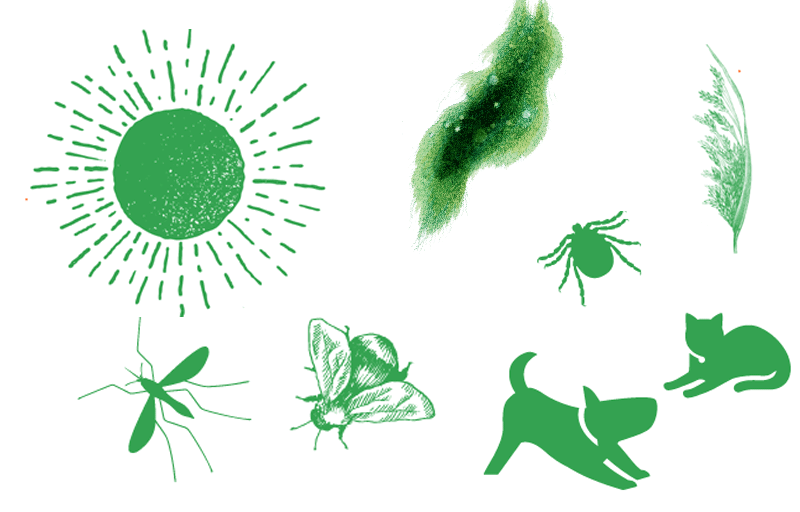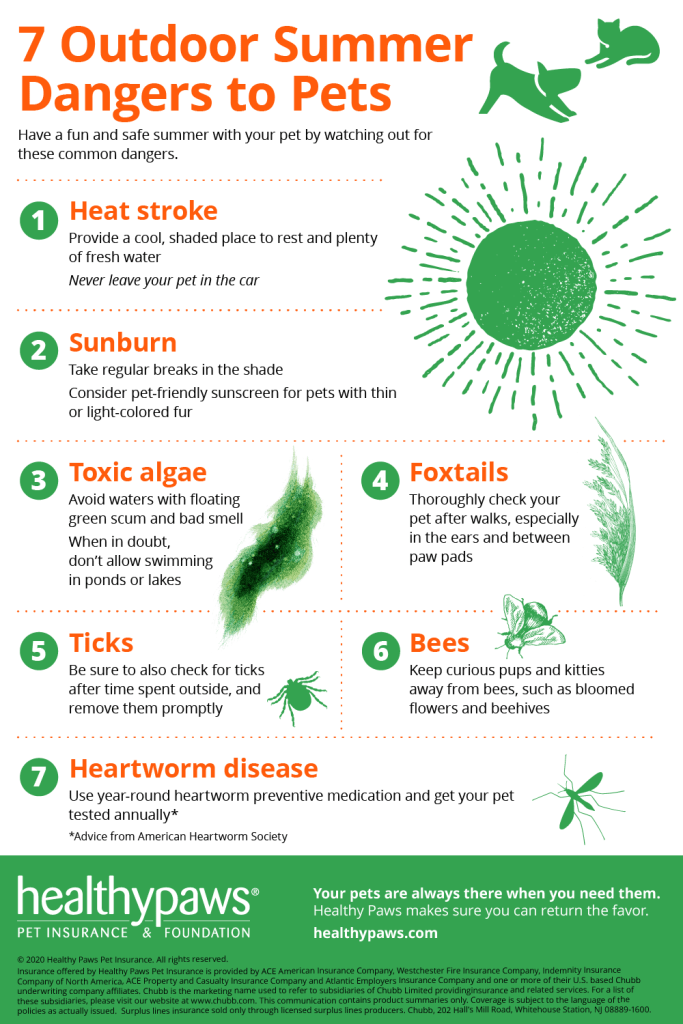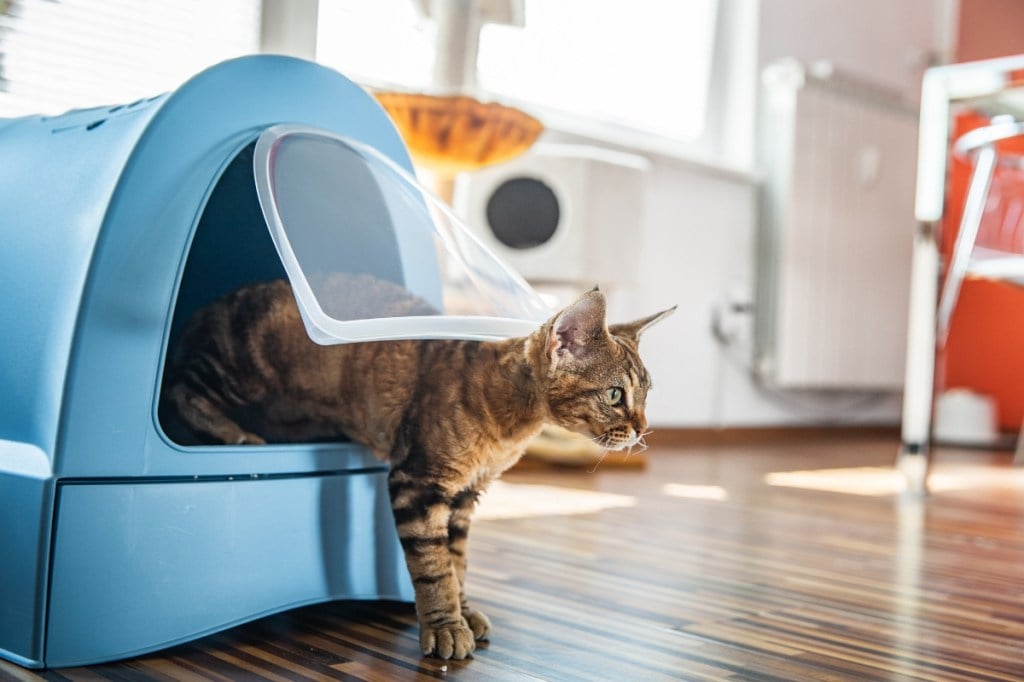Summer is here which means everyone is probably planning to spend more time outdoors with their pets. While outdoor fun and exercise is the best part of summer, be aware of seasonal hazards to avoid a visit to the veterinarian.
7 Outdoor Summer Dangers to Pets
Have fun and stay safe this summer by watching out for these seven common dangers.
1. Heat stroke
Heat stroke is a real threat when your pet cannot adequately cool down and stay hydrated. Make sure they always have a cool, shaded place to rest and plenty of fresh water to stay refreshed.
2. Sunburn
Pets with thin or patchy fur, or those with lighter-colored fur face a greater risk for sunburn than others. However, even if your pet has plenty of fur to protect their skin, all of our furry friends have exposed noses that can get burnt. Be sure your pet isn’t over-exposed to the sun by providing shady breaks, and consider using pet-friendly sunscreen.
3. Toxic algae
Swimming in or drinking water from contaminated ponds and lakes is seriously harmful for your pet’s health and can be fatal. Avoid waters with floating scum or those that have a bad smell to keep your dog safe. Learn more about how to spot toxic algae.
4. Foxtails
After walks or time spent outside, be sure to give your pet a thorough check for foxtails (plant seeds that attach to your pet’s fur or skin). Be sure to look inside the ears, nose, under the tail, and between the toes.
5. Ticks
After a hike or time spent outside, it’s wise to also check your pet for ticks. They can be found anywhere on your pet’s body, but may be found in the groin area or inside the ears. Remove ticks promptly and drop them in alcohol or hand sanitizer to make sure they are killed.
6. Bees
Keep curious kitties and pups away from areas where bees like to hang out, like bloomed flowers and beehives. If your pet gets stung, remove the stinger as quickly as possible with tweezers (or your fingernails) trying not to squeeze the sac. Monitor your pet for allergic reactions, consider offering Benadryl as a preventive measure, and rush to the veterinary hospital if you notice any signs of reaction.
7. Heartworm disease
Mosquitoes are out and about during summer months just waiting for their next meal. Though the itchy bite is generally harmless in itself, they can unfortunately pass heartworm disease to your pet, which is very dangerous. Be sure to keep your pet on a regular heartworm preventive medication, and keep up with regular vet checks as your veterinarian can provide advice about the risk of heartworm in your area.
Prioritizing the health and well-being of your pets means you’re a great candidate for pet insurance. Find out more about dog insurance (and cat insurance) and start by getting a free quote. Bonus: Each quote means a donation is made to homeless pets.










